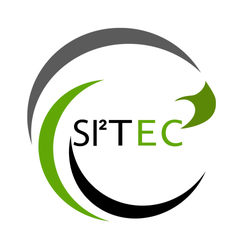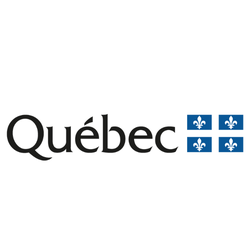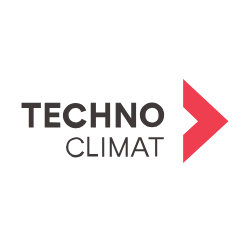
Open
innovÉÉ — SI2TEC
Last Update: October 27, 2025
QC, Canada
Supports innovative industrial projects for circular economy transition
Grant and Funding
At a glance
Funding available
Financing goals
Reduce the ecological footprint
Obtain certifications
Integrate new technologies
Eligible Funding
- Maximum amount : 500,000 $
- Up to 50% of project cost
Timeline
- Unspecified
Eligible candidates
Eligible Industries
- Agriculture, forestry, fishing and hunting
- Utilities
- Manufacturing
- Transportation and warehousing
- Professional, scientific and technical services
Location
- Quebec
Legal structures
- For-profit business
- Non-financial cooperative
Annual revenue
- All revenue ranges
Organisation size
- 20-2250 employees
Audience
- All groups
Overview
The INNOVÉÉ—SI2TEC grant provides funding of up to $500,000 to support collaborative and innovative projects that promote industrial symbiosis and transition towards a circular economy in Quebec. Eligible activities include the development and optimization of projects that demonstrate economic circularity and ecological transition.
Activities funded
- Development of new technologies and processes related to circular economy.
- Innovative projects with a minimum technology maturity level of 6, reaching prototype or real-environment process implementation.
- Collaborative projects addressing ecological transition challenges in Quebec within the circular economy framework.
Examples of admissible projects:
$ 500,000
Building a circular economy model in construction
$ 500,000
Optimizing the food waste bioconversion project
$ 500,000
Launching a digital platform for waste resource exchange
$ 500,000
Developing a sustainable textile recycling process
$ 500,000
Creating an industrial symbiosis hub for small businesses
Eligibility
- The project must originate from research and development activities.
- The project must be an innovation with a minimum technology readiness level of 6 (TRL), meaning it should have reached the prototyping/implementation stage in a real environment.
- The project must offer solutions to ecological transition issues in Quebec within the framework of a circular economy.
- The project requires involvement from at least two eligible entities, including at least one SME that meets the listed criteria.
- The project duration must be 24 months.
- The applicant SMEs must be members of an industrial research sector group (RSRI) such as CRIBIQ, CRITM, CQRDA, PRIMA, or Innov-ÉÉ.
- Eligible SMEs must be profit-driven companies with fewer than 250 employees conducting industrial activities in Quebec.
- Eligible complementary partners can be profit-driven companies with industrial activities in Quebec, both below and above 250 employees.
- Joint ventures between municipalities and private sectors are also eligible.
Who is eligible?
- Small and medium-sized enterprises (SMEs) that are members of a Regroupement sectoriel de recherche industrielle (RSRI) such as CRIBIQ, CRITM, CQRDA, PRIMA, or InnovÉÉ
- SMEs that are members of a cooperative or industrial federation that is a member of an RSRI
- Mixed companies (municipality/private sector)
- For-profit companies with fewer than 250 employees having industrial activities in Quebec
Who is not eligible
- Companies that are state-owned or majority-owned by a state enterprise.
- Cities or municipalities.
- Non-profit organizations (NPOs).
- Public research institutes.
- For-profit companies with more than 250 employees having industrial activities in Quebec.
- Regional county municipalities (MRCs).
Eligible expenses
- Professional fees for specialized services, including subcontracting services.
- Direct labor costs related to the project, including social benefits and mandatory contributions, as well as project management fees.
- Travel and accommodation expenses related to the project, in compliance with the current governmental standards outlined in the Recueil des politiques de gestion du gouvernement du Québec.
- Direct costs of materials and inventory.
- Direct costs of equipment, calculated based on the ratio between the project's duration and the equipment's useful life.
- Rental fees for equipment directly related to the project, calculated according to the project's duration.
- Fees for acquiring studies or other documents.
- Fees for animal studies or platform fees.
- Costs related to the preparation of an intellectual property protection strategy, obtaining intellectual property protection, and acquiring intellectual property rights or licenses (including patent application fees such as patent agent fees).
- Obtaining necessary approvals or certifications for commercialization.
Eligible geographic areas
- Companies with industrial activities located in Quebec.
Selection criteria
- Démontrer le gain commercial ou le potentiel de déploiement de la solution développée.
- Le niveau de maturité technologique du projet.
- La pertinence du projet d’innovation au regard d’une problématique liée à un enjeu environnemental.
- Les gains environnementaux escomptés au Québec et hors Québec, en comparaison avec la situation actuelle, et ce, sur l’ensemble du cycle de vie de l’innovation.
- Le caractère structurant du projet à l’échelle d’une filière, d’une chaîne de valeur ou d’un territoire.
- La qualité du partenariat.
- Être en adéquation avec les principes de l’économie circulaire :Repenser nos produits pour réduire la demande en ressources et préserver les écosystèmes.
- Intensifier l’usage des produits.
- Prolonger leur durée de vie ainsi que celle de leurs composants.
- Leur donner une nouvelle vie en fin de cycle.
- Générer une activité économique viable.
How to apply
1
Downloading the letter of intent
- Access the SIITEC program website.
- Download the letter of intent (LDI) template available online.
2
Submission of the letter of intent
- Fill out the letter of intent by including all relevant details of your project.
- Submit the letter of intent to the technical-economic analysis committee (CATE) for review.
3
Analysis of the letter of intent
- Await the response regarding the analysis of the letter of intent.
- Receive instructions for the submission of the detailed application.
4
Preparation of the detailed request
- Write a complete request including the objectives, project plan, and financial estimates.
- Include the necessary documents and evidence of technological concepts.
5
Submission of the detailed request
Send the detailed request to the technical-economic analysis committee (CATE) before the set deadline.
6
Approval Process
- Wait for the recommendation from the CATE.
- Receive authorization from the administrative committee (CA) as well as final approval from the ministry.
7
Notification and project initiation
- Receive a grant letter confirming the funding.
- Sign the research agreement with the partners.
- Start the project and establish monitoring with the stakeholders.
Additional information
- The program offers support services, including project preparation, access to equipment, partner matchmaking with academic or industrial entities, and supplementary financing.
- There are opportunities for participation in interest-based communities, webinars about the programs, and networking activities.
- The guide for the program is downloadable, providing detailed insights and instructions for applicants.
- A letter of intent needs to be downloaded as part of the application process.
- For queries regarding the funding program, applicants can contact Nabila El Khadir.
- The funding is aimed at supporting the transition towards a circular economy by enabling industrial innovations in Quebec.
- Eligible projects require a minimum technology readiness level of 6, focusing on prototyping or process implementation in a real-world setting.
Apply to this program
Frequently Asked Questions about the innovÉÉ — SI2TEC Program
Here are answers to the most common questions about the innovÉÉ — SI2TEC. This section explains what the program is, how much funding is available, eligibility requirements, application deadlines, and other important details to help you determine if this grant is right for your business.
What is the innovÉÉ — SI2TEC?
How much funding can be received?
Who is eligible for the innovÉÉ — SI2TEC program?
What expenses are eligible under innovÉÉ — SI2TEC?
Where is the innovÉÉ — SI2TEC available?
Apply to this program
More programs like this

Grant and FundingClosed
MAPAQ — Food Processing Program — Component 2
Ministry of Agriculture, Fisheries and Food (MAPAQ)Enhancing productivity through food industry automation assistance

Grant and FundingOpen
Support for biofood exports - individual projects
Ministry of Agriculture, Fisheries and Food (MAPAQ)SEB supports Quebec agri-food market expansion outside Quebec

Grant and FundingOpen
ÉcoPerformance — Recommissioning of building mechanical systems
Gouvernement du QuébecFunding to optimize the operation of building mechanical systems

Grant and FundingSuspended
Individual Market Access Support (SIAM)
Aliments du QuébecMarket Access Support for Quebec Food Processors

Grant and FundingOpen
Electricity Management Systems
Hydro-QuébecMoney for energy management systems in Quebec

Grant and FundingClosed
GHG Challenge Program - Industry
Environnement Québec (MELCC)Supports major industrial projects reducing greenhouse gas emissions

Grant and FundingOpen
Economic development program to help revitalize territories (DEPART)
Investissement Québec (IQ)DÉPART supports economic diversification and growth in targeted areas

Partnering and CollaborationGrant and FundingOpen
Call for collaborative and structuring innovation projects in Quebec's strategic sectors
Gouvernement du QuébecCollaborative innovation funding for Quebec's strategic sectors

Grant and FundingOpen
Innovative Projects Program
Hydro-QuébecSupports innovative, energy-efficient projects for multi-building developments

Grant and FundingOpen
Technoclimat
Environnement Québec (MELCC)Financial assistance for the demonstration of new technologies in Quebec
Sign up to our platform to access the innovÉÉ — SI2TEC information sheet for free
Get access to 4,000+ programs, practical guides, personalized alerts, and an AI assistant to support your grant applications.